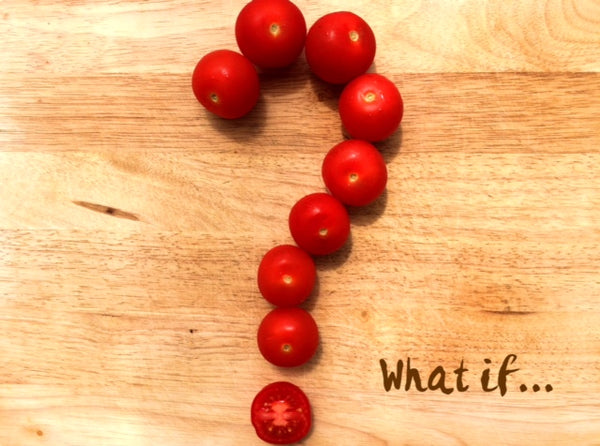Altruist or other?

I have a confession. It's something I have known for a while. But it seems to run so contrary to popular opinion, I find it hard to say it out loud.
I don't think gifting dinners is a nice thing to do.
A few months ago, I was offered a half scholarship to study at The Women's Business School. And so a month ago, I commenced. I have just handed in my first assessment. I have never, in all my years working and studying at University, completed an assessment quite like this one.
The question focused on who am I? What motivates me; what are my values? What is my business, and what is it that I believe will truly be of benefit to my customers? I have heard novelists say that they are often surprised by a turn of events in their own novels. This is somewhat surprising, given they are both controlling the plot and penning it. I can't say I've had a similar experience, but I did learn some things.
You know that we cook dinner for you and your people. And when we do, we use some of your money to cook dinner for a woman living with disability and her people. These women are doing the daily juggle too: often with fewer resources and greater challenges. By partnering with our paying customers, we’re picking up the tab for a number of women living with disability. As our sales grow, so does the number of families we support.
But gifting dinners isn’t “a nice thing to do”. Supporting vulnerable women is a matter of social justice. Women living with disability do not do the work-family-life juggle on a level playing field. Society does not value them, their children, or their partners in the same way that women without disability are valued. Living with disability means they are more likely to be socio-economically disadvantaged. Their earning potential is significantly reduced. Women living with disability have higher levels of depression, anxiety and stress than their non-disabled peers, and their physical health is poorer.
They are more likely to have babies who are born premature or with low birth weight. Those babies are more likely to be admitted to neonatal intensive care units. These women often have a hard start to mothering. And perhaps most hurtfully, they are much more likely to be told they should not be mothers.
We know that women living with disability could use some time and breathing space too. Exactly like you and me. And because you know how good it is when someone cooks for you, we know you’ll want to partner with us to change the daily lives of these vulnerable women too.
So here's my big question: I wonder if dinner could be the thing that pushes people up that continuum from crisis towards thriving. And I wonder if it’s one of the most cost effective interventions ever undertaken.
Imagine if dinner could prevent crisis-driven family breakdown? Or improve maternal mental health? Or just make us all feel like we can manage a little easier? Can one small act of service prevent years of heartache and destruction?
I intend to find out what happens for all of us when we have dinner done for us. Then we'll know whether or not we can positively impact people's lives through good food.
So, I'm not an altruist.
I'm just curious.
Other articles:
Quick links
Home Home Delivery Meals How it works Meal Delivery Info Contact us Blog Search About us Privacy policy Karen Will Cater
Contact us
About us
We exist to care for you through really good food. Whether it's your weeknight family meal, your big life celebrations or your large corporate events, we'd love to cook for you.
And together, we can change the daily lives of families living with disability. Find out about our social mission here.
